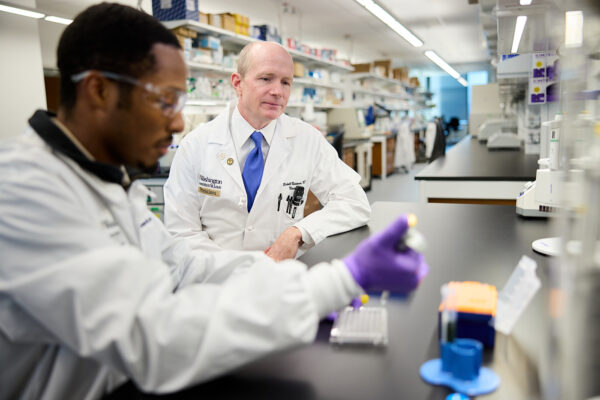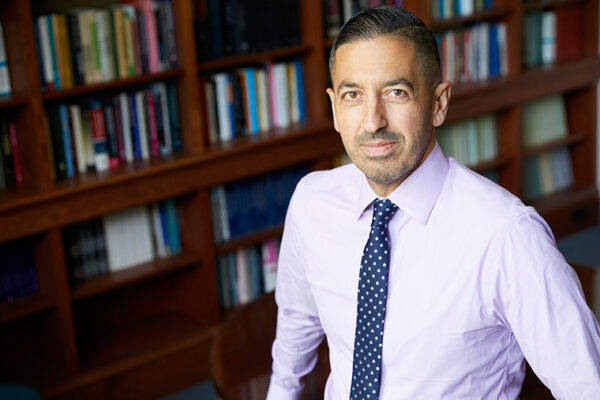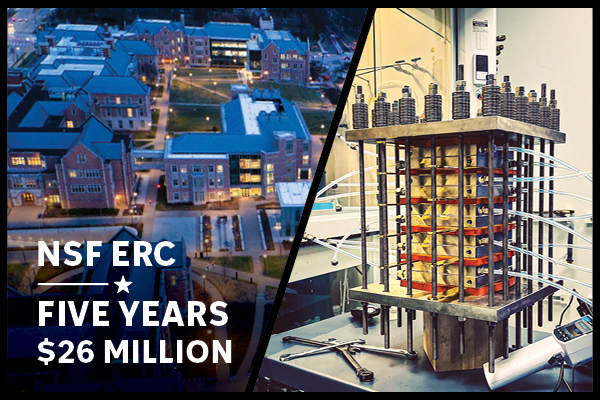New milestones, new discoveries, new faces and a new (albeit very old) name — 2024 was a terrific year for WashU. Here, the Source looks at some of the most-read stories of the year and highlights 2024’s best photos and videos.
Making way
The university unveiled a number of new initiatives and facilities that will advance its mission to be a leader in education, research and patient care.
The School of Medicine launched the Center for Translational Bioinformatics, an innovative joint effort of the McDonnell Genome Institute and the Institute for Informatics, Data Science & Biostatistics to accelerate precision medicine research and improve patient care by integrating comprehensive patient data and expansive genomic datasets.
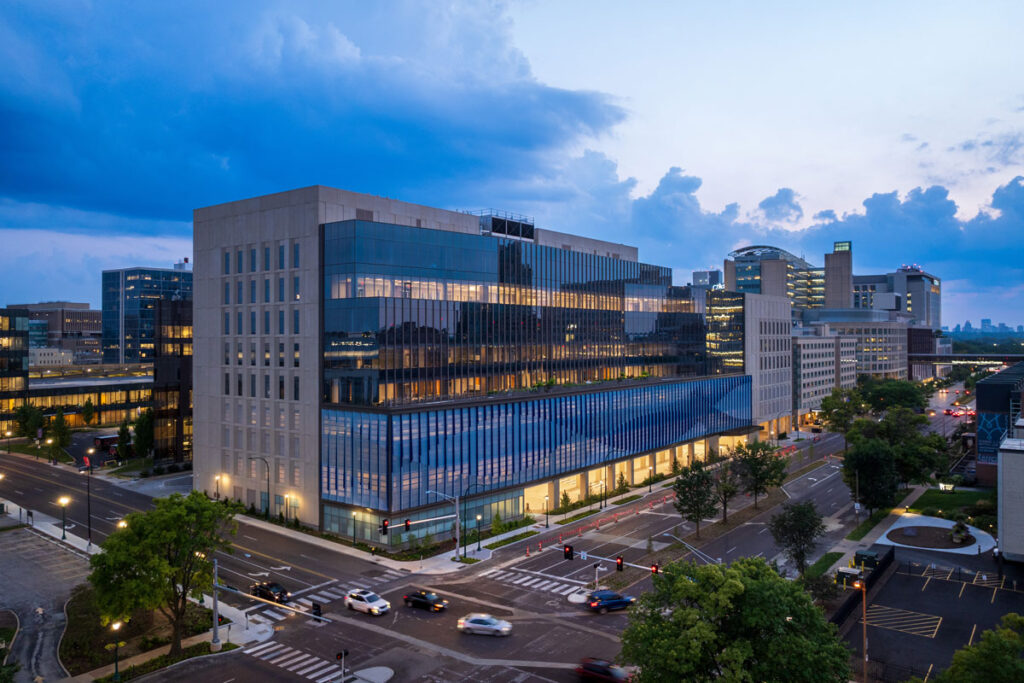
The Siteman Cancer Center‘s new outpatient building, designed for patient comfort and convenience, welcomed its first patients in September.
The university broke ground on Michael W. and Quirsis V. Riney Hall, which will house some of Arts & Sciences’ premier departments and programs and serve as a cornerstone for scholarly and educational partnerships with other schools and units across campus.
WashU also introduced new faces in 2024 — Sandro Galea, MD, the inaugural Margaret C. Ryan Dean of the planned School of Public Health; Stefanie A. Lindquist, dean of the School of Law, and the more than 1,800 members of the Class of 2028.
Lastly, the university also unveiled a new logo and website and officially adopted the name WashU.
Advancing human health
WashU researchers on both the Danforth and Medical campuses made important discoveries that promise to lead to better health outcomes.
Researchers in the lab of Gary Patti, the Michael and Tana Powell Professor of Chemistry in Arts & Sciences and a professor of genetics and of medicine at WashU Medicine, found that dietary fructose may promote tumor growth in animal models of melanoma, breast cancer and cervical cancer.
Researchers in the lab of Matthew Lew, an associate professor of electrical and systems engineering at the McKelvey School of Engineering. have used microscopy to chart amyloid beta’s underlying structure and yield insight into neurodegenerative disease such as Alzheimer’s.
And research from Nico U. F. Dosenbach, MD, a professor of neurology at WashU Medicine, provided a neurobiological explanation for how psilocybin, the active compound in magic mushrooms, temporarily scrambles a critical network of brain areas involved in introspective thinking such as daydreaming and remembering. The findings may lead to psilocybin-based therapies for mental illnesses such as depression and post-traumatic stress disorder.
Attracting funds for new research
WashU also won grants to fund important research.
The National Science Foundation awarded the McKelvey School of Engineering $26 million, the largest grant in its history, to embark on a bold plan to transform manufacturing toward zero or negative emissions by converting carbon dioxide ultimately into environmentally friendly chemicals and products that create a circular economy.
McKelvey Engineering also won a $20 million contract from the Advanced Research Projects Agency for Health (ARPA-H) to create a portable device to scan for eye diseases. The high-tech imaging tool could be used in other medical fields.
For the first time, WashU drew more than $1 billion in external funding in fiscal 2024. The money supports hundreds of WashU investigators tackling big challenges from Alzheimer’s disease to air pollution to childhood depression. Research funding also ripples across the economy, sparking job growth, new construction and local spending.
Understanding our brains
Research about our brains and behaviors also fascinated readers.
Emily Willroth, an assistant professor of psychological and brain sciences in Arts & Sciences, found that the COVID-19 pandemic made people more conscientious.
Researcher Isabella D’Ottone, in the lab of Patrick Hill, a professor of psychological and brain sciences in Arts & Sciences, published a study finding that people whose dating app profiles show a sense of purpose were rated higher on various scales for attractiveness compared with profiles that indicated no sense of purpose.
And new research in childhood development made the case that the “Thrive 5” — environmental stimulation, nutrition, neighborhood safety, positive caregiving and regular circadian rhythms and sleep — should be a public health priority. The study was by Deanna Barch, vice dean of research and a professor of psychological and brain sciences in Arts & Sciences and the Gregory B. Couch Professor of Psychiatry at WashU Medicine, and Joan Luby, MD, the Samuel and Mae S. Ludwig Professor of Child Psychiatry at WashU Medicine. The research detailed how “thrive factors” are a key element of healthy human brain, behavioral and cognitive development.
Partnering with St. Louis
WashU also continued its work to be “in St. Louis for St. Louis,” directly contributing $3.6 billion to the local economy.
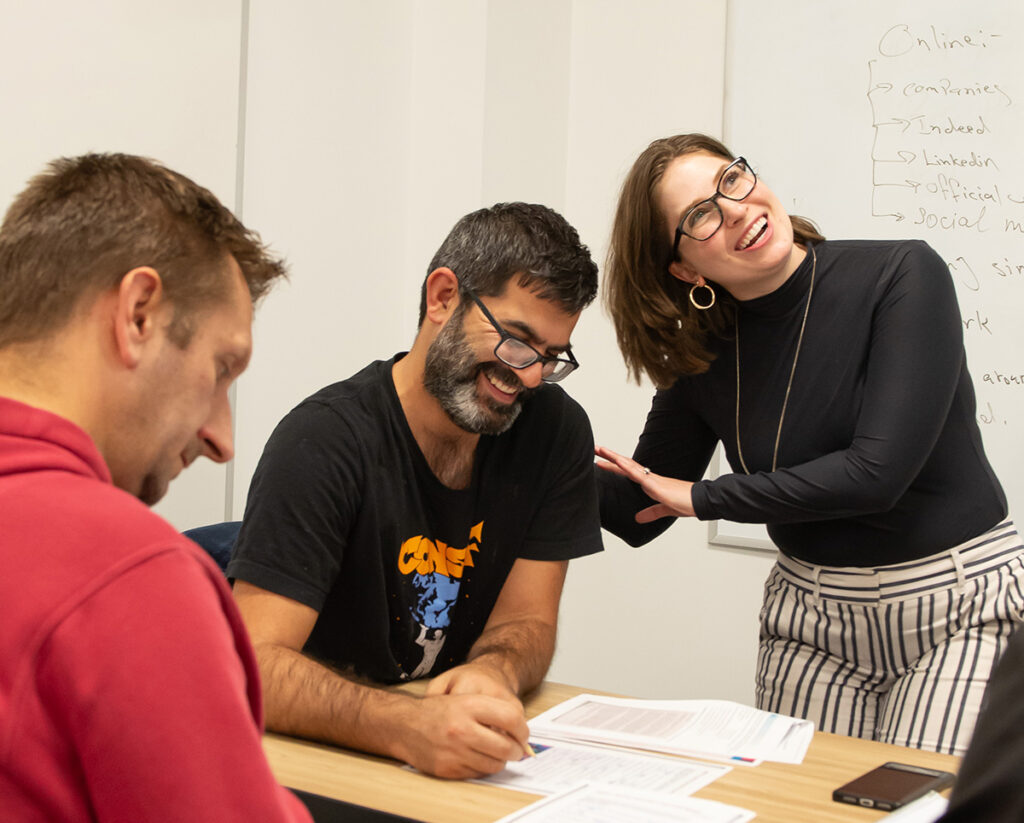
This year, the School of Continuing & Professional Studies launched Empower, a 26-week program to help refugees develop next-level language and professional skills to succeed in health care and other high-demand industries.
The “In St. Louis, For St. Louis” initiative also opened new spaces for regional collaboration in Delmar Divine, including the WashU Community Engagement Office, the Center for Community Health Partnerships and Research and the St. Louis Confluence Collaborative for Community-Engaged Research, Teaching and Practice.
And the university commissioned a report from Olin Business School’s Center for Analytics and Business Insights to detail which type of students are most likely to stay in St. Louis after graduation, as well as the factors that drive students’ decisions in choosing their first jobs. Researchers found that salary was the most important factor in student job and relocation decisions, but that cost of housing and proximity to friends and family also significantly influenced students’ decisions.
“Attracting and retaining world-class talent to the St. Louis region is one of our top priorities at WashU because when St. Louis wins, we all win,” Chancellor Andrew D. Martin said.
